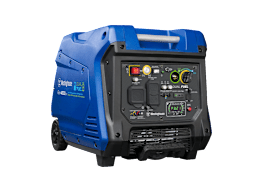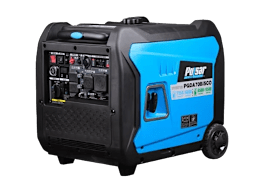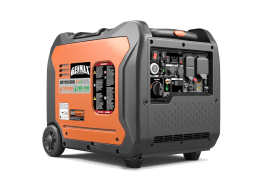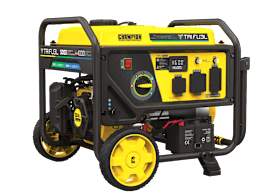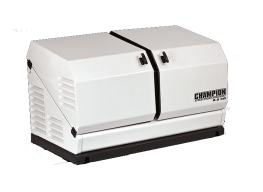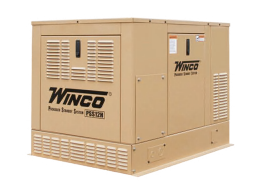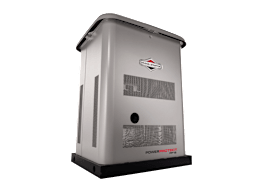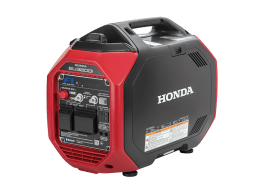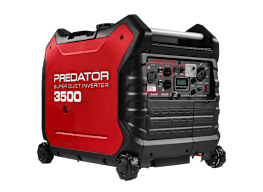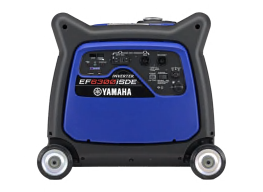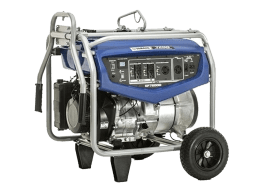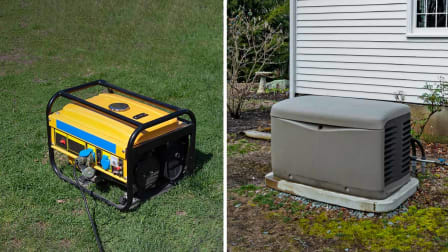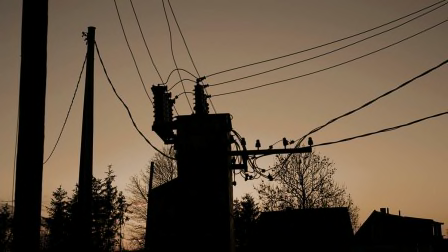Best Whole-House Generators
You'll pay a premium, but built-in home standby generators from companies like Champion, Generac, and Kohler can power your entire home during an outage
When you shop through retailer links on our site, we may earn affiliate commissions. 100% of the fees we collect are used to support our nonprofit mission. Learn more.

If you often lose power where you live, having a whole-house generator ensures that your appliances are available when you need them, even hardwired devices like your well pump, water heater, and air conditioning and heating systems.
Unlike a portable generator, these professionally installed units (aka home standby generators) pump out lots of electricity and kick on automatically when there’s an outage, letting you go about your business almost as if there isn’t a disruption on the power grid. About the size of a central air conditioning unit, they run on natural gas or propane, so they don’t need to be refueled as often either.
The largest models we test deliver at least 10,000 watts of electricity, enough to power everything in an average home. Smaller models provide at least 5,000 watts, enough to power key household appliances, electronics, and systems in your home. They will, for instance, keep your refrigerator, air conditioner, and well pump running.
Pros and Cons of Standby Generators
There are other benefits to choosing a whole-house generator.
- Because they start automatically, there’s no futzing in the dark with flashlights to get things going.
- They give you your choice of fuel: propane, which can be stored in a large tank and is less risky than a large supply of gasoline, or natural gas, which provides an unlimited supply of power.
- They run a self-diagnosis and let you know when maintenance is needed.
- And because they’re professionally installed—outdoors, with the exhaust properly diverted away from your house—they don’t present the carbon monoxide safety issues posed by a portable generator.
But there are downsides.
- Whole-house generators cost more than portables. They can range in price from $2,000 to $7,000. By comparison, large portable generators that power a whole house start at around $1,000.
- They’re large in size and require a level concrete pad outside your home, a bit like a central air conditioning unit.
- They require professional installation, sometimes involving a plumbing/heating contractor for a gas line, a general contractor for the concrete pad, and an electrician to hook up the generator to your electrical panel.
- The installation can be very expensive, ranging from about $2,000 to $20,000 or more, and smaller units cost almost as much to install as larger ones.
Is a Whole-House Generator Worth It?
That depends on how often you lose power; on how quickly your power company takes to restore it; and, to a lesser degree, on your tolerance for living without power. And, of course, your budget is a factor. If you lose power only occasionally, a portable generator is both less expensive and less convenient.
Best Large Whole-House Generators
Large whole-house generators have an output of 10,000 watts or more, which means enough power for all your appliances. On average, they run from 140 to 200 hours on a propane tank, a shorter duration than their smaller counterparts.
Best Small Whole-House Generators
The best small whole-house generators in our ratings put out less than 10,000 watts of power but often run longer on propane than larger standby generators. Note that while smaller models are less expensive to purchase, the installation costs are comparable to a larger model, so your overall savings on the project might not be as large as you expect.
How CR Tests Generators
To test how a generator will perform when you need it most, our engineers load up every model with a variety of essentials you might want to power during an outage, such as a space heater, refrigerator, or window air conditioner.
Our testers make sure the generator can handle the load it promises, and also determine what happens when a sudden spike in voltage hits, such as when your fridge’s compressor kicks on when the generator is already close to capacity. The best models take that in stride while lower-performing generators bog down or even stall. We also look at how efficiently a generator uses fuel and how long it runs on a tank of propane. Check out our generator buying guide for more details on our intensive testing program.
















